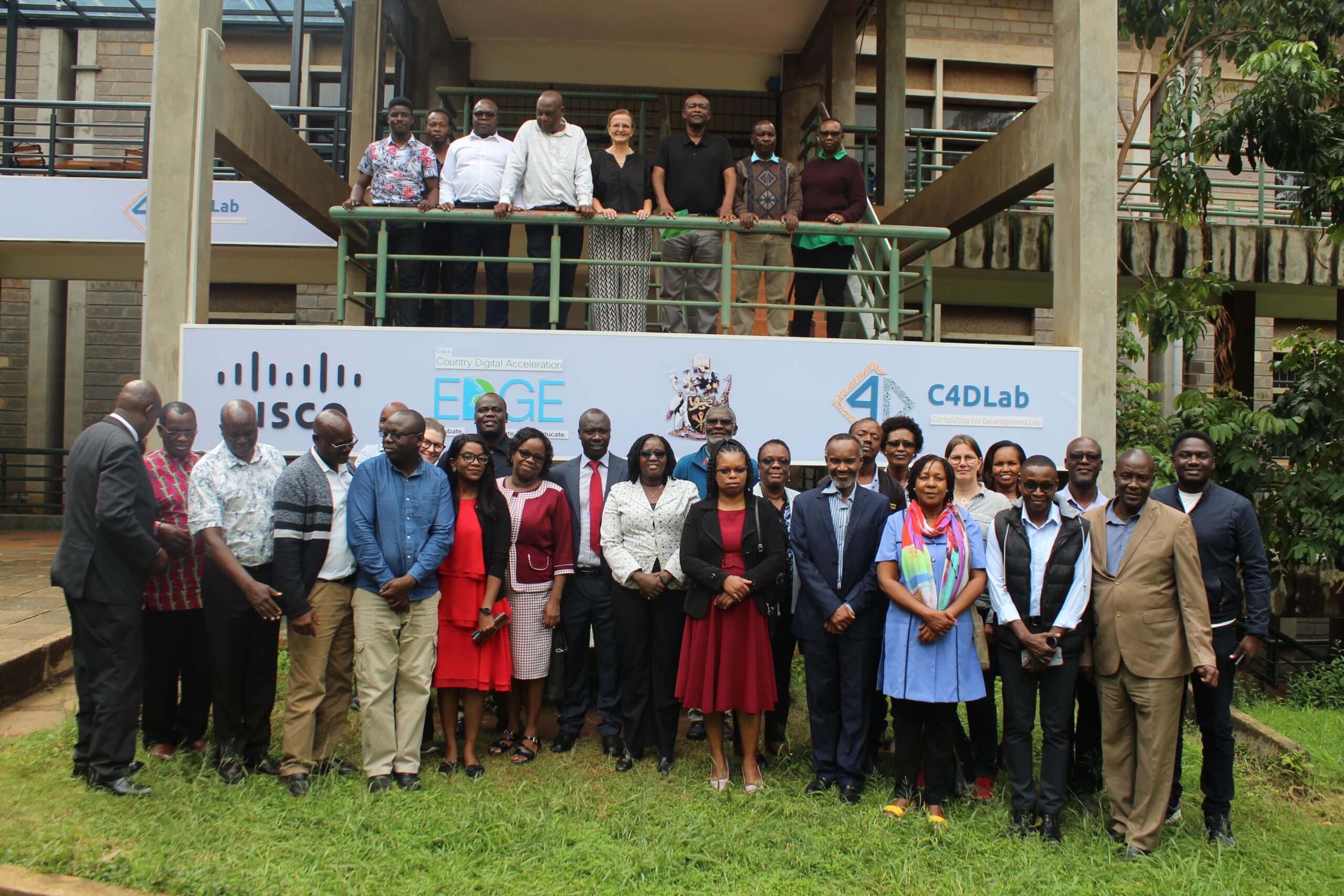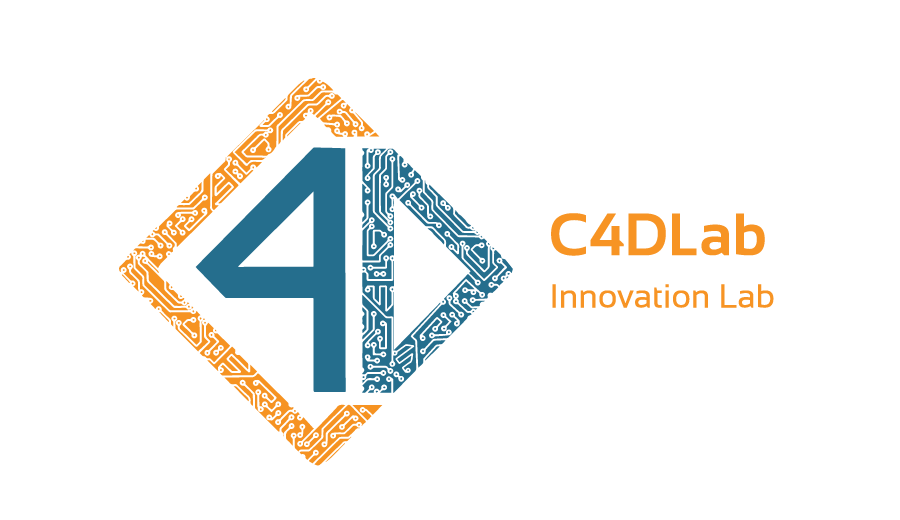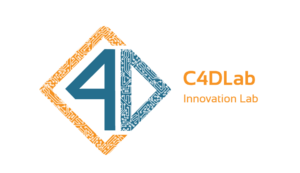Four teams from Kenyan and Zambian universities meet for the second day (final) today to share feedback on the piloting of Open Distance Learning (ODL) and Open University (OU) approaches to learning, which are aspects of Problem-based Learning (PBL) that the University of Nairobi’s C4DLab is championing.
The event dubbed “PBL-BioAfrica Results Workshop,” was a precursor to the Nairobi Innovation Week 2024 slated for May 8-10, 2024. PBL-BioAfrica is a seven-member consortium of Kenyan, Zambian and Finnish universities keen on climate-smart agriculture, that is, bioeconomy and entrepreneurship through problem-based learning, as explained by Dr. Laitinen, the Project Coordinator. The project is funded by the Finnish government’s Foreign Affairs department in the amount of 2 million euros. The event was formally opened by the Chairperson of PBL-BioAfrica Board of Directors, Prof. Francis Mulaa.
Representatives of Unza University and Mulungushi University (Zambia); and South Eastern University, Egerton University and The University of Nairobi (Kenya) shared the status of their proposed Open Distance Learning (ODL) and/or the Open University (OU) curricula, providing insights into aspects such as curriculum delivery effectiveness, relevance of content, and constraints.
The event comprised presentations targeting ODL and/or OU guided by Hamk University’s Professor Eija Laitinen. Each presenter fielded questions from Professor Laitinen and the participants as a way of troubleshooting and providing relevant feedback.
The teams, classified by country, engaged in group activity where they used the Political and Economic, Social Technological, Ecological and Cultural (PESTEC) framework to analyze the learning environment in 2030 in their respective countries. Hames University’s Ulla-Maija Knuutti facilitated this session.
Some of the issues arising out of the deliberations included limited finances to offer short courses, and some partners who have not yet begun implementing ODL. There is also a need to determine the credit worth of the courses and to regularize them with regulators so that the certifications fit within set standards. This will give learners confidence that their certificates are valuable.
The gist of the presentations was that development of ODL and OU curricula was at different stages in the representative universities, but there was great promise. Yet challenges exist, which the teams are willing to address moving forward.
So, what is the “Value of Composing ODL and OU” at this time? Following the discussions, a number of benefits came out. The session was facilitated by both Ulla Maya Knuuth and Sirpa Ojansuu (also from Hamk University).
Starting ODL and OU at this time would benefit different stakeholders including students, teachers, universities, NGOs, society, companies and employers in various ways. Easy access to affordable and flexible education, technological exposure, non-disruptive work-study, enhanced outreach programs (strengthened linkages and collaborations) that impact the community.
As Dr. Sam Ruhiu, C4DLab, put it, “they will be able to exhibit some of the work they have been doing around ODL curriculum, and the experiences and the challenges.”
Prof. Christopher Chepken, Ag. DVC, Planning and Infrastructure at Open University of Kenya (OUK); Dr. Susan Njuguna, Dean, School of Health Sciences at Daystar University’s; and Dr. Titus Kibaara, Dean, School of Arts, Humanities and Social Sciences at Presbyterian University, graced the event as invited guests and shared their experiences and perspectives on the thematic areas of ODL and OU, more so the opportunities and challenges that exist within this proposed system of education. The three fielded one question each from Egerton University’s Prof. Patience Mshenga, who had introduced them earlier on.
Prof. Chepken, formerly of the Department of Computing and Informatics at The University of Nairobi, answered the question: how the consortium can plug into OUK’s activities. He pointed out that the thing about OU is the student must understand how to learn and the lecturer how to teach. If well-designed, he said, there are several different tools out there that combined with a proper learning management system can provide a much better learning assessment than human capacity can do.
Responding to how far Daystar University had gone with PBL, Dr. Njuguna mentioned that the School of Health Sciences has embraced PBL, with the modules already developed; however, there are human resource challenges. They have well-equipped labs, especially in the school of Health Sciences.
Dr. Kibaara, responding to the question, “How can universities support PBL, OER and ODL?” said that the management enhances and encourages distance learning.
The university’s ODL platform was recently upgraded, late last year, but there are still issues to do with intellectual property rights, particularly around licensing the resources, since the material has to be downloaded.
There is student reluctance between going pure ODL and hybrid. Apparently, “there is competition between the ODL platform and other commercial platforms,” said Dr. Kibaara.
Today, May 8, 2024, the event moves to the iconic University of Nairobi Tower at the main campus where it will be treated as a side event at the Nairobi Innovation Week, May 8-10, 2024. It will focus on business plan development and related aspects that give meaning to innovation and entrepreneurship..
Read more about PBL-BioAfrica: http://c4dlab.uonbi.ac.ke/partner-programs/
New Impetus, Promising Future for ODL and OU as PBL-BioAfrica Workshop Ends at C4DLab Ahead of NIW 2024

Events
May 8, 2024

